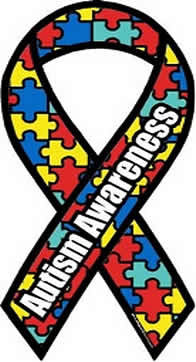 A group of British investigators is reporting on a new modality of psychological treatment in disorders related to autism in the current issue of Psychotherapy and Psychosomatics.
A group of British investigators is reporting on a new modality of psychological treatment in disorders related to autism in the current issue of Psychotherapy and Psychosomatics.
High rates of anxiety and mood disorders, and particularly obsessive-compulsive disorder (OCD), have been reported in children and adults with autism spectrum disorders (ASD). This non-randomized, non-blind controlled trial comparing cognitive behavioural therapy (CBT) for OCD with treatment as usual (TAU) was conducted in a sample of 24 high-functioning adults with ASD and co-morbid OCD who were referred to a British specialist ASD clinic. The CBT and TAU groups did not differ with respect to gender, IQ or length of time between symptom measurement, which averaged at 15.9 months (SD = 10.7). The TAU group was significantly older than the CBT group [p = 0.017]. Equivalent numbers of both groups (50%) had been inpatients at some time during the study. There were no significant differences between the groups in the proportion of participants with additional psychopathology. The majority of additional diagnoses were of recurrent uni-polar depression or anxiety disorder. The CBT group was no more likely to be on medication at the start of treatment than the TAU group (p = 0.408). All participants who were on medication had been on a stable dose for a minimum of 6 weeks prior to baseline symptom measurement. The medication was changed for 4 of the CBT group and 2 of the TAU group during treatment. The main outcome measure was the Yale-Brown Obsessive Compulsive Scale (YBOCS) severity scale. OCD symptoms were carefully distinguished from the repetitive phenomena typically seen in this population. The model of treatment was standard CBT for OCD (comprising exposure and response prevention as described by Foa and Goldstein and cognitive appraisal of OCD-related beliefs according to methods outlined by Salkovskis). A mixed-model ANOVA with 1 between-groups factor (CBT vs. TAU) and 1 within-groups factor (baseline vs. post-treatment symptom ratings) revealed a significant group by time interaction on the YBOCS total severity score (F = 4.341; d.f. = 1.22; p = 0.049), suggesting greater improvement in one group versus the other. Repeated-measures t tests showed significant pre- to posttreatment decreases on the YBOCS total severity and obsession scores for the CBT group but not the TAU group.
From this very preliminary study the investigators concluded that OCD symptoms in ASD do not show any change over time in the absence of treatment; a considerable proportion of individuals with ASD and OCD show significant improvement with standard psychological treatment adapted for this population, and CBT for OCD can be conducted in the usual fashion but with some adaptations. A randomized controlled trial testing this promising intervention is now underway.
Source: Psychotherapy and Psychosomatics via Alpha Galileo
